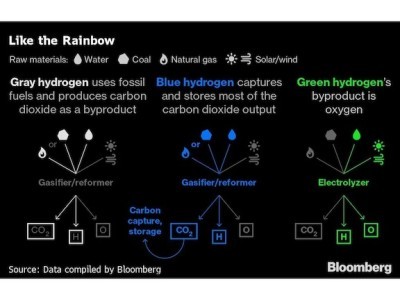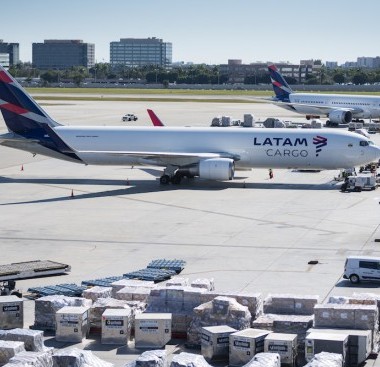Biden signs aid package with Iran oil sanctions into law
President Joe Biden signed a foreign aid package that includes sanctions on Iran’s oil sector into law Wednesday.
The legislation, which was approved by the Senate Tuesday night by a vote of 79-18, broadens sanctions to include foreign ports, vessels and refineries that knowingly process or ship Iranian crude in violation of existing US sanctions. It also expands so-called secondary sanctions to cover all transactions between Chinese financial institutions and sanctioned Iranian banks used to purchase petroleum and oil-derived products.
The $95 billion aid package also includes assistance for Ukraine, Israel and Taiwan.

The measure requires an annual determination as to whether Chinese financial institutions have engaged in conduct that violates sanctionable conduct, according to a report by the House Financial Services Committee, which said 80% of Iran’s roughly 1.5 million barrel per day of exports go to China to be refined by small independent refineries known as “teapots.”
Analysts said Biden is likely to take advantage of waiver authority built into the sanctions and could opt to avoid stringent enforcement of the sanctions, which could contribute to a rise in oil and gasoline prices.
“Our take is that President Biden will use any flexibility afforded him to ensure no material disruption in Iranian crude oil takes place before the election,” said Bob McNally, president of consultant Rapidan Energy Group and a former White House official “There is no higher priority for the White House than preventing an oil price spike this year.”
A person familiar with the matter said the administration is analyzing the legislation, but no impact on oil markets is expected before the fall.
The political calculus on waiving the sanctions could change if Iran is perceived as renewing its aggression toward Israel or continuing work on a nuclear weapon, Kevin Book, managing director for ClearView Energy Partners LLC, a Washington consulting firm, said in an interview. ClearView has said the sanctions could add as much as $8.40 a barrel to global prices.
Oil trade involving independent refineries is hard to stop because the companies don’t have a nexus to the US financial system, said Ben Cahill, a senior fellow, with the Center for Strategic and International Studies, a Washington think tank.
“Sanctions leverage is limited,” Cahill said in an email. “The key question is how tough the White House will be on sanctions enforcement in an election year.”
Similar Stories
A hotspot for Russian oil transfers is suddenly deserted
A stretch of water off the coast of southern Greece that had become a pivotal logistics hub in the Russian oil supply chain has suddenly been abandoned by the tankers…
View Article
International Windship Association invites maritime stakeholders to participate in Small Vessel Wind Propulsion Survey
View Article
Renewable energy project powers port with hydrogen
View Article
Tycoon sees $3.5 billion investments in Namibia green hydrogen
View Article
Daimler CEO calls missing electric truck chargers a top concern
View Article
Amazon, BP counter push to repeal Washington climate law
View ArticleGet the most up-to-date trending news!
SubscribeIndustry updates and weekly newsletter direct to your inbox!





